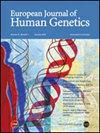Reassessment of variants of uncertain significance in tumor suppressor genes using new ClinGen PP1/PP4 criteria guidance
IF 4.6
2区 生物学
Q2 BIOCHEMISTRY & MOLECULAR BIOLOGY
引用次数: 0
Abstract
Recently, new clinical genome resource (ClinGen) guidance focusing on cosegregation (PP1) and phenotype-specificity criteria (PP4) were introduced, based on the observation that the phenotype specificity could provide greater level of pathogenicity evidence. This study aimed to reassess variants of uncertain significance (VUS) found in tumor suppressor genes with specific phenotypes using these new recommendations. We retrieved VUS from an in-house database of all germline variants detected using sequencing since 2008. Patients carrying VUS from seven target tumor suppressor genes, NF1, TSC1, TSC2, RB1, PTCH1, STK11, and FH, were selected and the pathogenicity of each variant was reassessed using the new ClinGen PP1/PP4 criteria. In total, 128 unique VUS from 145 carriers were evaluated. Initial classification using the classic PP1/PP4 criteria from ACMG/AMP and point-based classification resulted in 21 variants being reclassified (2 pathogenic variants, 3 likely pathogenic variants [LPVs], 15 likely benign variants, and 1 benign variant), leaving 101 VUS. Applying the new ClinGen PP1/PP4 criteria, 32 (31.4%) remaining VUS were reclassified as LPVs. The reclassification rate was highest in STK11 (88.9%). Representative cases highlighted successful reclassification owing to highly specific phenotypes aligned with the new criteria. The new ClinGen PP1/PP4 criteria significantly improved the reclassification of VUS in tumor suppressor genes associated with specific phenotypes. The new criteria could substantially enhance the accuracy of variant classification.

使用新的ClinGen PP1/PP4标准指导重新评估肿瘤抑制基因中不确定意义的变异。
最近,基于观察到表型特异性可以提供更高水平的致病性证据,引入了新的临床基因组资源(ClinGen)指南,重点关注共分离(PP1)和表型特异性标准(PP4)。本研究旨在使用这些新建议重新评估在具有特定表型的肿瘤抑制基因中发现的不确定意义变异(VUS)。我们从2008年以来使用测序检测到的所有种系变异的内部数据库中检索了VUS。选择携带NF1、TSC1、TSC2、RB1、PTCH1、STK11和FH 7种靶肿瘤抑制基因VUS的患者,并使用新的ClinGen PP1/PP4标准重新评估每种变异的致病性。总共评估了来自145个携带者的128个独特的VUS。根据ACMG/AMP的经典PP1/PP4标准和基于点的分类进行初始分类,结果有21个变异被重新分类(2个致病变异,3个可能致病变异[LPVs], 15个可能良性变异,1个良性变异),剩下101个VUS。应用新的ClinGen PP1/PP4标准,32例(31.4%)剩余VUS被重新分类为LPVs。重分类率最高的是STK11(88.9%)。有代表性的病例强调了成功的重新分类,因为高度特异性的表型与新标准一致。新的ClinGen PP1/PP4标准显著改善了与特定表型相关的肿瘤抑制基因VUS的重新分类。新标准可大大提高变异分类的准确性。
本文章由计算机程序翻译,如有差异,请以英文原文为准。
求助全文
约1分钟内获得全文
求助全文
来源期刊

European Journal of Human Genetics
生物-生化与分子生物学
CiteScore
9.90
自引率
5.80%
发文量
216
审稿时长
2 months
期刊介绍:
The European Journal of Human Genetics is the official journal of the European Society of Human Genetics, publishing high-quality, original research papers, short reports and reviews in the rapidly expanding field of human genetics and genomics. It covers molecular, clinical and cytogenetics, interfacing between advanced biomedical research and the clinician, and bridging the great diversity of facilities, resources and viewpoints in the genetics community.
Key areas include:
-Monogenic and multifactorial disorders
-Development and malformation
-Hereditary cancer
-Medical Genomics
-Gene mapping and functional studies
-Genotype-phenotype correlations
-Genetic variation and genome diversity
-Statistical and computational genetics
-Bioinformatics
-Advances in diagnostics
-Therapy and prevention
-Animal models
-Genetic services
-Community genetics
 求助内容:
求助内容: 应助结果提醒方式:
应助结果提醒方式:


